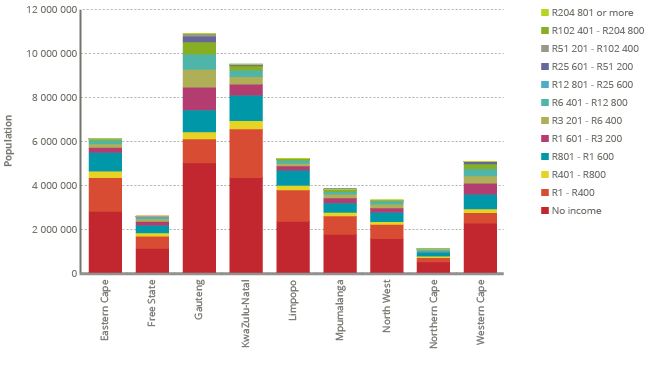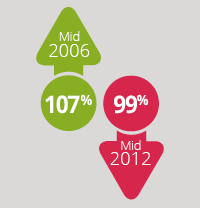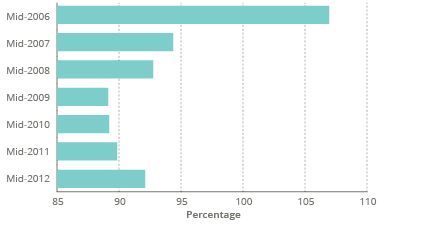Government in the GCR also faces the serious challenge of mobilising sufficient resources to address existing service demands, as well as expanding the development agenda to encompass new and sometimes very different ‘objects of government’. These include planning for climate change, improving food security, assembling land in order to promote transit oriented development, providing infrastructure for non-motorised transit, providing for alternatives to RDP housing, and a host of others.
Further, while its expenditure commitments expand, government is challenged on the revenue side by:
- As a result of migration and household growth, a larger number and proportion of poor residents and households, whose transition onto the ladder of prosperity – that a city-region such as Gauteng can provide – inevitably needs to be subsidised.
- An on-going economic recession, which has impacted on the ability of many households to pay for service delivery, and in turn municipal income collection.
- Mounting pressure to adapt to the requirements of a green economy, in which development is decoupled from unsustainable resource use. Municipal revenues depend on the sale of more electricity and water, the collection of more waste, the development of more land, and the use of more motor fuel on the basis of which a fuel levy is derived. As municipalities are duty bound to promote renewable – often off-grid – energy options, implement demand management measures to reduce household consumption of water and power, and promote more sustainable and private and public transport options, their revenues will be affected. There is no easy way forward out of this conundrum.







